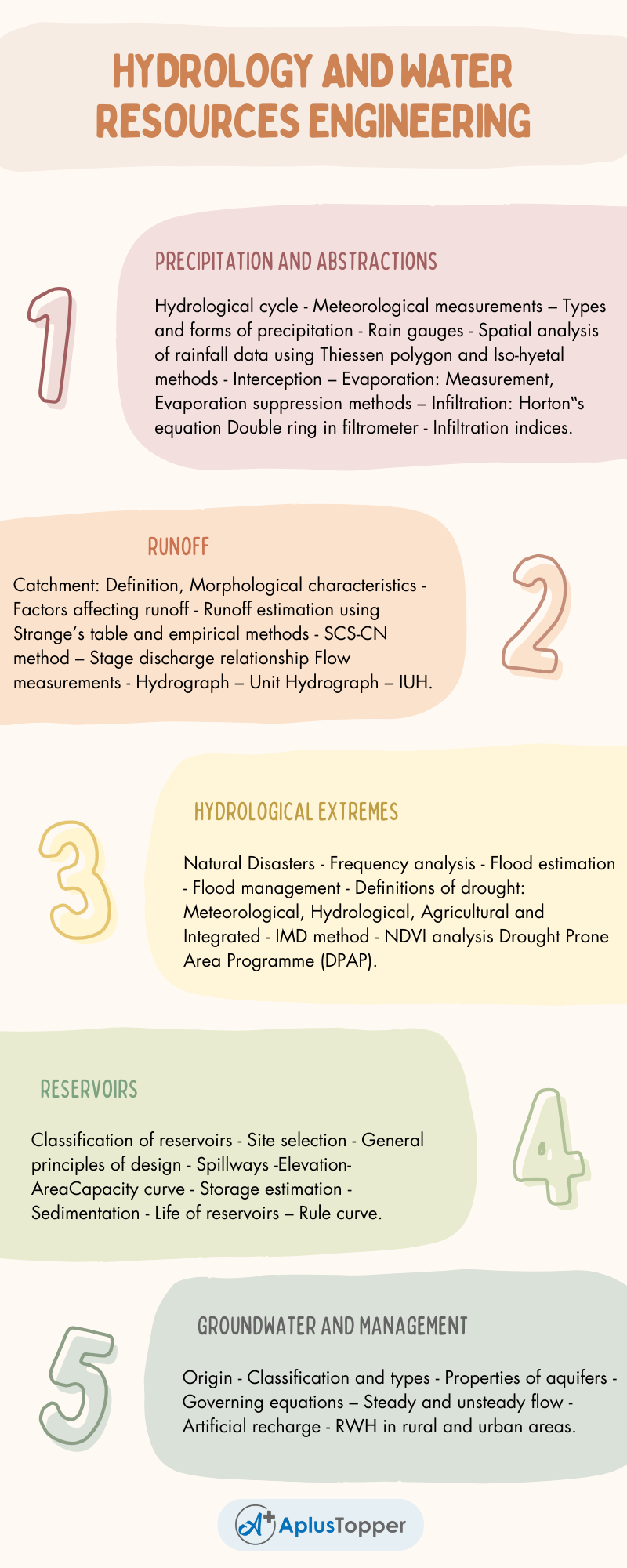Anna University, Subject code – AI3404 deals with the B.E civil Engineering Semester-VII Hydrology And Water Resources Engineering syllabus regulation 2021 relating to affiliated institutions. From here, Students can get assistance in preparing notes to excel in academic performance.
We include every topic of the Hydrology And Water Resources Engineering Syllabus, to understand the subject very well. It will help you to improve your idea of syllabus of AI3404 -Hydrology And Water Resources Engineering Syllabus on your fingertips to go ahead in a clear path of preparation. In this following article Hydrology And Water Resources Engineering Syllabus, will help you to understand the topics in a detailed way, if this information is useful to you. Hope you share it with your friends.
If you want to know more about the syllabus of B.E Civil Engineering connected to an affiliated institution’s under four-year undergraduate degree programme. We provide you with a detailed Year-wise, semester-wise, and Subject-wise syllabus in the following link B.E Civil Engineering Syllabus Anna University, Regulation 2021.
Aim Of Concept:
- To introduce to the students, the concepts of hydrological processes, hydrological extremes and groundwater.
- To prepare the students to quantify, regulate and manage water resources.
AI3404- Hydrology And Water Resources Engineering Syllabus
Unit I: Precipitation And Abstractions
Hydrological cycle – Meteorological measurements – Types and forms of precipitation – Rain gauges – Spatial analysis of rainfall data using Thiessen polygon and Iso-hyetal methods – Interception – Evaporation: Measurement, Evaporation suppression methods – Infiltration: Horton‟s equation Double ring in filtrometer – Infiltration indices.
Unit II: Runoff
Catchment: Definition, Morphological characteristics – Factors affecting runoff – Runoff estimation using Strange’s table and empirical methods – SCS-CN method – Stage discharge relationship Flow measurements – Hydrograph – Unit Hydrograph – IUH.
Unit III: Hydrological Extremes
Natural Disasters – Frequency analysis – Flood estimation – Flood management – Definitions of drought: Meteorological, Hydrological, Agricultural and Integrated – IMD method – NDVI analysis Drought Prone Area Programme (DPAP).
Unit IV: Reservoirs
Classification of reservoirs – Site selection – General principles of design – Spillways -Elevation-AreaCapacity curve – Storage estimation – Sedimentation – Life of reservoirs – Rule curve.

Unit V: Groundwater And Management
Origin – Classification and types – Properties of aquifers – Governing equations – Steady and unsteady flow – Artificial recharge – RWH in rural and urban areas.
Text Books:
- Subramanya K, “Engineering Hydrology”- Tata McGraw Hill, 2010
- Jayarami Reddy P, “Hydrology”, Tata McGraw Hill, 2008.
References:
- David Keith Todd. “Groundwater Hydrology”, John Wiley & Sons, Inc. 2007
- Ven Te Chow, Maidment, D.R. and Mays, L.W. “Applied Hydrology”, McGraw Hill International Book Company, 1998.
- Raghunath. H.M., “Hydrology”, Wiley Eastern Ltd., 1998.
- Bhagu R. Chahar, Groundwater Hydrology, McGraw Hill Education (India) Pvt Ltd, New Delhi, 2017.
Related Posts Of Semester –VII:
- CE3701 – Estimation, Costing and Valuation Engineering
- GE3791 – Human Values and Ethics
- GE3752 – Total Quality Management
